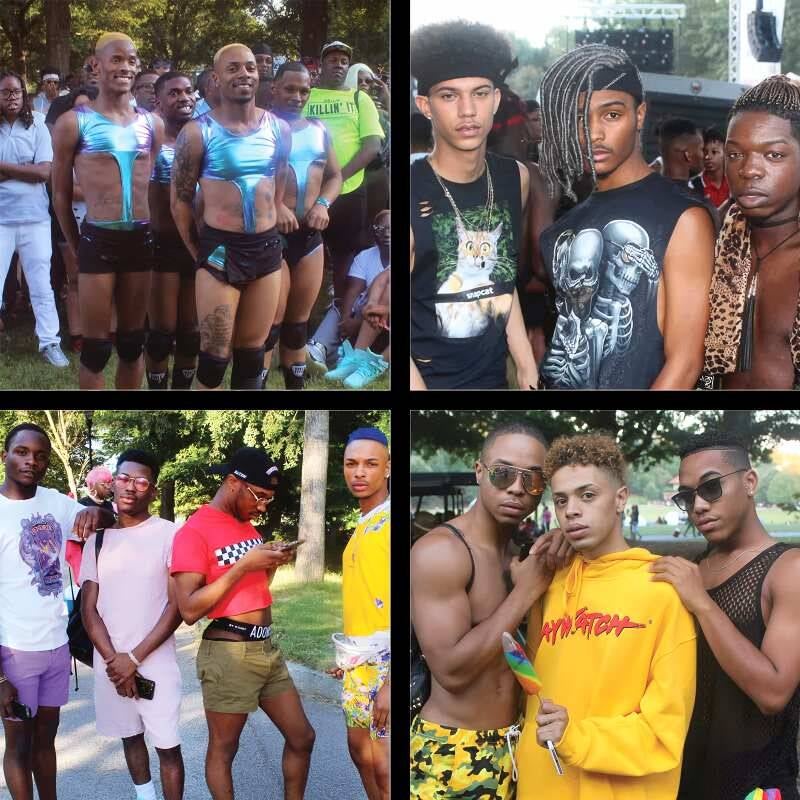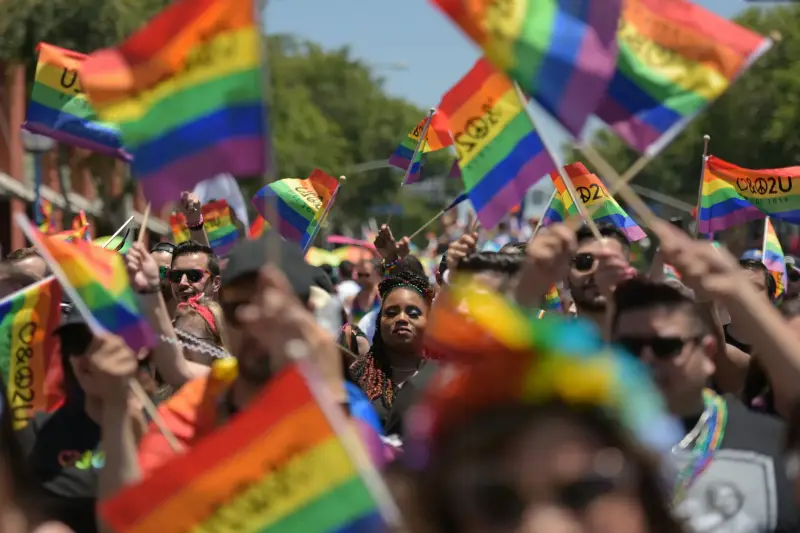Written By: Junius G. Champagne aka Jae Superior/Blaqq Kynn

Unpacking the Invisible Wounds: Healing from Stigma and Internalized Oppression
I know you've been struggling with internalized oppression, shame, or low sexual confidence? So, today I want to empower you to learn how Black LGBTQ+ men can heal from their trauma, reclaim identity & thrive sexually. This is how we surpass internalized homophobia and racism as gay, trans or bisexual men, rebuild sexual confidence, and stop feeling ashamed of who we are, and go for what we desire. So, lets be bold, brave and authentic by unlocking our truth and explore what makes us feel powerful.
Let’s talk about the pain you don’t post about—the stuff that stays buried under the surface. The weight you carry in your chest, your relationships, and even your bed. This is for the ones navigating life as Black and queer or questioning, trying to breathe in a world that tells you your existence is too much, too loud, or not enough.
You’re not imagining it. You’re not weak. But you might be tired—because the psychological scars of discrimination, shame, and internalized oppression run deep. These are invisible wounds, but they’re real. And this piece? It’s your invitation to begin reclaiming power.
The Pervasive Shadow of Societal Discrimination
Every day, you’re moving through a world that doesn't always see you—unless it’s to judge or label you. Racism, homophobia, microaggressions, and institutional gatekeeping are not “one-off” moments. They build up. And over time, the outside noise becomes an inside voice.
Here’s what that looks like:
- Chronic Stress & Hypervigilance: Always on edge. Always scanning for the next insult or threat. That tension? It gets stored in the body.
- Anxiety & Depression: Feeling stuck between being yourself and being accepted. That shit weighs heavy.
- Low Self-Esteem: When society calls you broken long enough, you start to believe it.
- Identity Confusion: Who am I, really, when every part of me has been questioned?
This is survival in a system that was never built for you to thrive in. But the first step to healing is knowing you deserve to.
The Intersectional Burden: Homophobia in Black Communities
Let’s get real—sometimes, the places that are supposed to protect us hurt us the most. For many Black LGBTQ+ folks, your own community can feel like a battlefield. You may love your culture, your roots, your people—but still feel like you gotta hide your truth to survive.
Why?
Because cultural, religious, and generational beliefs often cast queerness as a threat. Not just to tradition, but to masculinity, to family pride, to what it means to be “a strong Black man.”
This leads to:
- Double Marginalization: Pushed out by the mainstream for being Black. Pushed out by your people for being queer.
- Isolation & Secrecy: Living behind masks—at family dinners, at church, at the barbershop.
- Internalized Homophobia: Carrying shame that was never yours to begin with.
The truth? You can’t heal in a place that keeps you small. And you don’t have to choose between your Blackness and your queerness. They both belong to you.
The Pernicious Grip of Internalized Racism and Shame
When society tells you over and over again that your body, your love, your vibe is “wrong”—that poison starts to soak in. Internalized racism and shame don’t just mess with your self-image—they choke your joy.
How this shows up:
- Self-Hatred or Criticism: Hating your reflection. Questioning your worth. Speaking to yourself in the same language that oppressors use.
- Code-Switching and Perfectionism: Overachieving just to prove you belong. Dimming your light to make others comfortable.
- Body Image Issues: Trying to fit into a mold that was never shaped for us—especially when Black beauty gets ignored or fetishized.
- Suppression of Authentic Self: Always editing yourself. Never fully exhaling.
If you’ve been in this space, let this be the moment you realize—none of it was ever your fault. You’ve been surviving in armor. Now it’s time to learn how to feel safe in your own skin.
How It Impacts Sexual Confidence and Behavior
Let’s talk sex—because oppression doesn’t stop at the bedroom door. If the world taught you your body isn’t worthy, or your desires are dirty, it can mess with how you show up intimately.
Here’s how it plays out:
- Intimacy Issues: Struggling to be vulnerable, to trust, to let someone see you.
- Sexual Shame: Feeling like your desires are wrong—even in your most private moments.
- Performance Anxiety: Trying to “perform” instead of connect. Worrying about living up to stereotypes or expectations.
- Low Libido/Arousal Issues: When your nervous system is stuck in survival mode, pleasure takes a back seat.
- Unsafe Sex: Sometimes, you don’t protect what you don’t value. That’s why healing matters.
- Aversion to Self-Pleasure: Feeling guilty just for touching yourself with care.
But here's the truth—you have the right to feel good. Your pleasure is not a privilege. It’s a birthright.
Pathways to Healing and Reclamation
Healing from internalized oppression isn’t a straight line—it’s a commitment to choose yourself every day. And it takes real work, especially for men taught to keep it all inside. Here’s where that work can begin:
1. Acknowledge and Validate Your Experience
Stop gaslighting yourself. You’re not crazy or too sensitive. You’re responding to real trauma, and it deserves care.
2. Find Culturally Competent Therapy
You need a therapist who gets it. Someone who understands the weight of racial trauma, queerness, and masculinity all tangled together. Search for therapists who specialize in Black LGBTQ+ mental health, intersectionality, and trauma-informed care.
3. Build Affirming Communities
Find your tribe. Whether in person or online, surround yourself with people who celebrate your truth—not just tolerate it. Healing accelerates in community.
4. Reclaim Your Narrative
Your story isn’t a tragedy. It’s a revolution in progress. Read books, follow creators, and dive into the history of Black queer resilience. Let those stories remind you of who you are.
5. Practice Radical Self-Compassion
Be gentle with yourself. You’ve made it this far. Give yourself the same grace you’d give your younger brother or best friend. Every part of you deserves love—including the messy parts.
6. Reclaim Sexual Confidence and Agency
- Educate Yourself: Learn about consent, pleasure, and your body. Knowledge is power—and foreplay.
- Reconnect With Your Body: Try breathwork, dance, yoga—whatever helps you feel in your body, not at war with it.
- Set Boundaries: Say no when it’s needed. Say yes only when it feels right.
- Explore Desire Without Shame: Whether through self-pleasure, journaling, or therapy—rediscover what you like, not what you were told to like.
7. Engage in Advocacy (if you're ready)
When you heal, you light the path for others. Whether it's mentoring, organizing, or sharing your truth—turning pain into purpose is a powerful move.
You Are Not Broken—You’re Becoming
Healing from stigma, racism, and shame isn’t about forgetting what happened. It’s about reclaiming your time, your truth, and your pleasure. It’s about building a life that feels like freedom—from the inside out.
This is your reminder: You’re not alone. You’re not too much. You’re not a problem to be fixed.
You’re a whole man, unfolding.
Recommended Articles to Read Next:

Long-Tail Keywords for Overcoming Stigma and Internalized Oppression
Healing & Therapy
- how to heal internalized homophobia in black communities
- therapy for internalized racism and shame
- finding culturally competent therapists for black LGBTQ+ clients
- psychological healing from societal discrimination effects
- resources for black queer individuals dealing with discrimination trauma
- support groups for internalized oppression healing
- mindfulness exercises for internalized shame
- books on healing from historical trauma and internalized racism
- trauma-informed care for black LGBTQ+ mental health
- professional help for sexual confidence issues after discrimination
Impact on Sexual Confidence & Behavior
- improving sexual confidence after experiencing discrimination
- overcoming sexual shame due to racial discrimination
- impact of internalized oppression on intimate relationships
- reclaiming sexual agency after trauma and discrimination
- strategies for developing body positivity after racialized shame
- how does internalized homophobia affect sex life
- building healthy sexual identity after discrimination
- addressing low libido from chronic stress and discrimination
- support for black women overcoming sexual confidence issues from racism
- navigating sexual vulnerability when dealing with internalized shame
Identity & Community
- navigating family homophobia as a black gay man
- understanding intersectional identities and mental health
- building resilience against systemic discrimination
- where to find safe spaces for black queer youth
- how to address anti-blackness within the LGBTQ+ community
- black queer liberation and mental wellness
- creating affirming spaces for black trans individuals
- challenges of dating as a black queer person with internalized oppression
- fostering self-acceptance in the face of societal stigma
- tools for building self-worth after identity-based discrimination
General Topic & Awareness
- psychological effects of societal discrimination on black LGBTQ+
- what is internalized oppression and how to overcome it
- addressing the mental health impact of racial and sexual discrimination
- understanding the intersection of race, sexuality, and mental health
- navigating shame and stigma in marginalized communities


Add comment
Comments